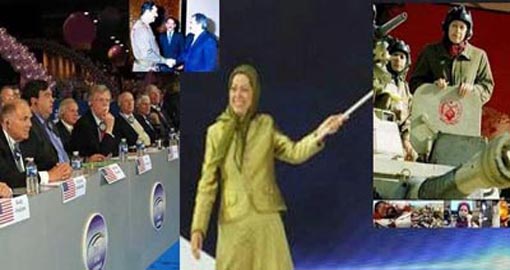
Iran rejects French envoy’s biased remarks.
Iran has lashed out at the French ambassador to the UN for making “consciously biased” remarks about Tehran’s role in the Middle East, saying such fabricated claims aim to cover up Paris widespread interference in Syria’s internal affairs.
Iranian Foreign Ministry spokesman Bahram Qasemi said on Tuesday that French Ambassador to the United Nations François Delattre made “spiteful” remarks about Iran’s nuclear and missile activities and its regional policies.
“The French ambassador’s remarks are devoid of truth and are aimed at covering up France broad interference in Syria’s affairs which has inflicted heavy human and financial losses on the Syrian people,” Qasemi said.
Addressing a UN Security Council’s meeting in New York on Monday, the French envoy expressed concern over several “destabilizing” actions by Iran, including the testing of ballistic missiles “capable of carrying nuclear weapons.”
“It is important for regional stability for Iran to abstain from any destabilizing and dangerous activity,” Delattre alleged.
The Iranian spokesman rejected the claims and said, “Iran’s military capabilities, including missiles, have not been designed to carry nuclear weapons and are not within the jurisdiction of the Security Council’s resolutions and their annexes.”
He added that countries equipping armed groups are responsible for further complicating and escalating the crisis in Syria.
“The Islamic Republic of Iran has always supported [the introduction of] reforms in Syria and the cessation of violence and regards holding national dialog within the framework of Syria-Syria negotiations as the solution to the country’s crisis,” the spokesperson pointed out.
He expressed Iran’s determination to actively help improve peace and stability in the Middle East in a bid to counter violent terrorism and extremism, saying Tehran is ready to fully cooperate with its neighboring countries and the international community to fight this common global threat.
He also said the French diplomat’s comments about Iran’s missile program run counter to the nuclear agreement, known as the Joint Comprehensive Plan of Action (JCPOA), reached between the Islamic Republic and the P5+1 group of countries on July 14, 2015.
“Iran’s military capabilities, including missiles, are exclusively for legitimate defense purposes. Such equipment have not been designed to carry nuclear weapons,” Qasemi said.
The Iranian Foreign Ministry spokesman further criticized the French diplomat for leveling allegations against Major General Qasem Soleimani, the commander of the Quds Force of Iran’s Islamic Revolution Guards Corps (IRGC).
“The comments by this French official … come as French leaders and authorities are consciously ignoring the Zionist regime as the source of crisis and the main obstacle to regional and global peace.”
In his address to the Security Council session, Delattre said France was concerned by information about foreign travel by General Qasem Soleimani, who was still subject to a travel ban.
The Iranian spokesperson said France itself is one of the sources of instability in the region.
“Regrettably, France, besides its continuous efforts to destabilize the region through its convergence with the creators and supporters of Daesh, has recently hosted a gathering of terrorist groups such as the terrorist Mujahedin-e Khalq Organization (MKO) and the directors of the Taliban, al-Qaeda and Daesh,” he added.
He said such measures by the French authorities are aimed at whitewashing the crimes of the MKO terrorist group against the Iranian nation and officials and stand in stark contrast to the obligations of this country and declared policies of French political leaders.
Paris on July 9 hosted an annual meeting organized by the MKO terrorist group which was attended by former Saudi intelligence chief, Prince Turki al-Faisal. The former Saudi spy chief gave a 30-minute address to the gathering.
The MKO is the most hated terrorist group among the Iranians because of its dark history of assassinations and bombings and for siding with Saddam Hussein in his eight-year war against Iran in the 1980s.


